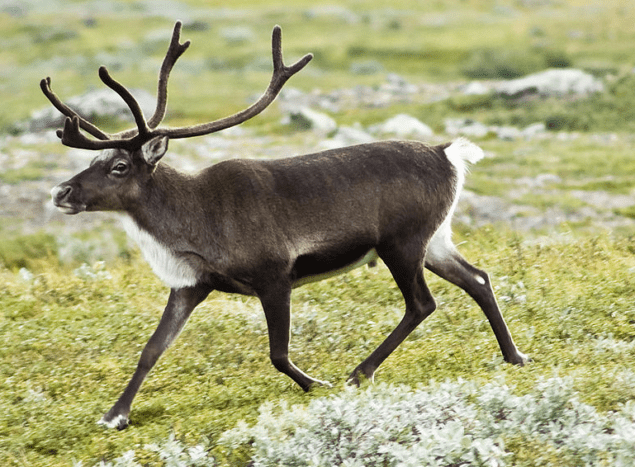
It’s that time of year when everyone is looking for stories with a Christmassy angle. My colleagues here at IOP Publishing are no exception and they have just put out a press release about some reindeer-related physics. Apparently, hungry reindeer in northern Norway are increasing the albedo of their feeding grounds by eating lots of plants. Albedo is a measure of how much sunlight is reflected back from the surface of the Earth – rather than being absorbed and dissipated as heat – and plays an important role in climate. A worry in the far north is that global warming will lead to greater plant cover – which will reduce albedo and lead to even more warming. Now, it looks like reindeer could help break this cycle. “The effect reindeer grazing can have on albedo and energy balances is potentially large enough to be regionally important,” says Mariska te Beest, from Umeå University in Sweden. “It also points towards herbivore management being a possible tool to combat future warming. Most of the arctic tundra is grazed by either domesticated or wild reindeer, so this is an important finding.”
Here is a great gift idea for a budding young physicist. The quantum computing expert Scott Aaronson has teamed up with the artist Zach Weinersmith to create a delightful comic strip about quantum computing. Inspired by the dreaded “sex talk” that parents give to their children, the comic follows a mother as she shatters several myths about quantum computing that her precocious son has picked up from his peers and the popular media. The strip is called “The talk” and as someone who struggles on a regular basis to understand quantum computing, I found it very useful – and entertaining.
On Monday I had the great pleasure of appearing on the radio programme Love and Science, hosted by the incomparable Malcolm Love. The show is an hour long and I was the only guest, so it was really hard work – but also very enjoyable. We chatted about the Physics World top 10 breakthroughs of 2016 and I got a chance to explain why we chose several of the winners. Love’s programme is broadcast on BCFM here in Bristol and you can listen to Monday’s show by clicking here and then choosing “15:00 – 19/12/2016” under recent broadcasts.
We will be taking a well-earned Christmas break here at Physics World, but we still have a few gems going out over the next week or so. Tune in on 26 December, when you can try to solve our holiday word challenge that is based on physics events that happened in 2016. Then on New Year’s Eve you can amuse your friends with a round-up of humorous stories that have appeared in Physics World.
Normal service will resume on 3 January. If you are taking holidays over the next few weeks, I hope you get a chance to relax and look back over your achievements of 2016 – as well as look forward to what the next year will bring.



